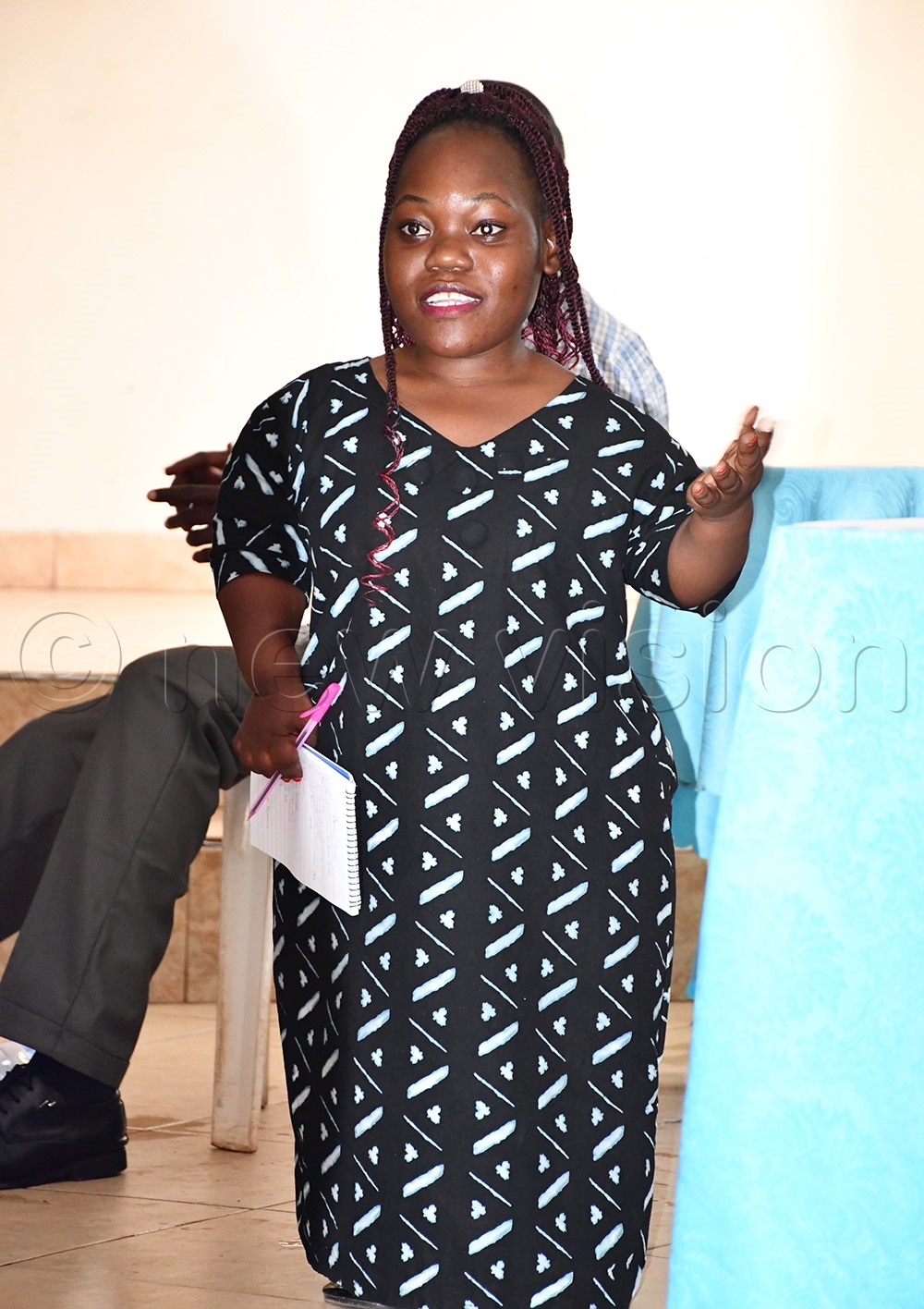PWDs want disability special skills included in teachers’ curriculum
The youthful PWDs under their various associations say that while the education ministry has emphasised inclusive education, its implementation remains difficult because many teachers lack the competence to handle learners with special needs.
Some of the youths posing for a group photo with there facilitors during the Eastern youths with disabilities career guidance day. (Photo by Doreen Musingo)
____________________
Persons with Disabilities (PWDs) have urged the Government to integrate disability special skills into the national teachers’ training curriculum as a practical step towards implementing inclusiveness in the education system.
The youthful PWDs under their various associations say that while the education ministry has emphasised inclusive education, its implementation remains difficult because many teachers lack the competence to handle learners with special needs.
Shamim Wokobeirem, a youth representative at the National Union of Disabled Persons of Uganda (NUDIPU), says without equipping teachers with skills such as sign language, braille and specialised learning methods, children with disabilities will continue to lag behind.
Shamim Wokobeirem, a youth representative at the National Union of Disabled Persons of Uganda (NUDIPU), making her remarks during the Eastern youths with disabilities career guidance day. (Photo by Doreen Musingo)
“You cannot talk about inclusive education when the very people who teach our children are not trained to address their needs. We want the Government to make disability special skills compulsory in all teacher training colleges,” Wokobeire said.
She asked the education ministry, on behalf of other PWDs, to not only reform the curriculum but also to recruit interpreters and allocate more funds to special needs education.
Wokobeire, who has a disability of short stature, made the remarks while giving a motivational speech at the Eastern youths with disabilities career guidance day, where she encouraged them to have a mindset change towards working for a better life by first owning their own challenges in life.
The meeting implemented under the Building Effective Network (BEN MAPP) programme under Integrated Disabled Women Activities (IDIWA) was held on August 25, 2025, at Ntinda Valley Hotel in Iganga district.
“As PWDs own your challenges, stop lamenting to everyone because most people aren’t interested in listening to them. Once you get an opportunity to get an education, use it to learn, which will help you secure a proper job,” she urged.
Hope Vivian Nasubo with Spina Bifida disability said the Government needs to sensitise both students and teachers on special needs skills and how to handle them. She explained that this will help reduce the stigma and discrimination while in school.
Nasubo, a student of Uganda College of Commerce, Tororo, said only primary sections have teachers with a few in secondary, while higher institutions of learning are lacking.
“I have faced discrimination and stigma right from primary to tertiary, we expect the Government to sensitise more of our fellow learners and teachers at all levels to reduce stigma and discrimination. This sometimes makes us feel like not going to school or easily dropping out, which has made some of us failures, yet we are bright,” she said.
Inclusiveness is a pipe dream
Grace Omoding from Tororo district said inclusiveness is just mere talk, as PWDs are still looked at as a problem in society. She noted that some learners drop out of school because teachers are unable to support them adequately due to a lack of essential skills.
Lidya Namakika, the Iganga district educational officer in charge of special needs, said their major challenge is the negative attitude of teachers towards PWD’s which she partly attributed to their failure.
She cited an example where the Iganga education authorities organised free specialised training for teachers on how to handle PWDs, but it was neglected because of lack of transport allowances
“We organised free specialised trainings for teachers on how to handle PWDs; however, only one or two would turn up every weekend, while others would complain of transport allowances until we gave up on the trainings,” she said.
She said they face challenges like poor attitude by parents and communities towards children with disabilities, claiming they don’t have the capacity to learn, lack supporting gears like wheelchairs, white canes or clutches, and inadequate scholastic materials like braille machines and trained staff to handle PWDs.
Flavia Kalegere, the BEN MAPP project at IDIWA, said the meeting was aimed at empowering youths with disabilities with skills and tactics on how best to handle and present themselves during job interviews.
She encouraged youths that once they have the right requirements and documents for a specific job, they should stop undermining themselves because they can ably compete with normal people.
Dr Emmanuel Humphrey Lusango, who was the lead facilitator, urged them to have self-esteem with a focus on developing confidence to embrace all opportunities that come up. He urged them to have some legal knowledge and know their rights as a defence mechanism.
However, he seriously cautioned them over social acts like drunkenness, which undermine their credibility.